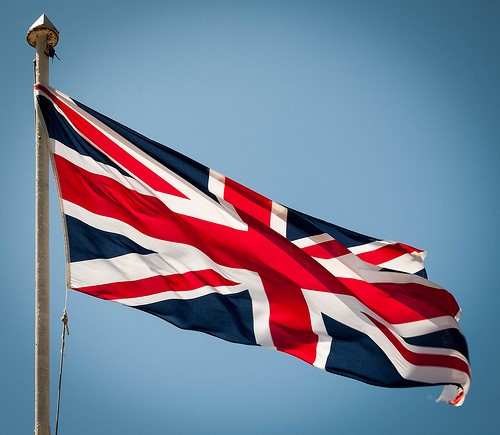Europe must help May sugar-coat the very bitter pills the Brits are going to have to swallow.
Commentary by Nick Whitney for the European Council on Foreign Relations
In less than a month, EU leaders meeting in Brussels will have to decide whether ‘sufficient progress’ has been made in phase 1 of the Brexit talks (the divorce issues) for phase 2 negotiations to get underway. If so, they will also have to agree new negotiating guidelines for Michel Barnier on the future relationship, and on the transition.
This stage was meant to have been reached in October, and any further delay to the negotiating timetable will shorten the odds on a complete breakdown in the talks. No wonder stress levels around the December summit are rising. But even assuming that the two sides manage to navigate the immediate crisis, worse will follow hard on its heels.
The immediate problem is largely about money. On the other two divorce issues, citizens’ rights and the Irish border, ‘sufficient progress’ will probably be declared come December (even if, on Ireland, this is more a recognition that the problem cannot be disentangled from the terms of the future relationship). But on money, the two sides remain at loggerheads.
Theresa May’s Florence speech looked hopeful, with its promise of two more years’ contributions to the EU budget, and affirmation that “The UK will honour commitments we have made during the period of our membership.” But the expected follow-up, with the UK specifying what it understands those commitments to be, has not happened – raising suspicions in Europe that Britain aims either to wriggle out of what it owes, or to tie a financial settlement to trade concessions later in the talks.
Money is the UK’s main bargaining asset (for all the Brexiteers’ bravura, the EU holds all the other cards in these negotiations), so the EU cannot reasonably expect the UK to give it up entirely before the talks have even got halfway. Moreover, the announcement of a definitive figure will inevitably trigger howls of betrayal from Brexiteers, and demands for talks to be broken off at once – unless Prime Minister May can present it as the price for an advantageous trade deal. Since the EU has no interest in the talks collapsing, they need to help May stay vague about the size of the bill for a while yet.
Actually, putting a definitive figure on the UK’s final bill will be quite difficult anyway. Britain’s share of, for example, loan guarantees for Ukraine could be anything between an eye-watering sum and nothing at all, depending on whether or not the loans go bad. Even clear liabilities, such as for the pensions of British EU officials, are hard to cost today, depending as they do on uncertain actuarial assumptions.
For this reason, given a modicum of trust and goodwill, a short-term fudge should have been easy to achieve, balancing the EU’s wish for precision against the UK’s desire for continuing vagueness. The lesson of the current impasse over money is just how fast trust and goodwill have drained out of these talks.
And there is worse just around the corner. Even if the money issue is finessed the EU’s phase 2 negotiating guidelines for Barnier will come as an unpleasant shock for the British side. The UK’s whole approach to the negotiations has been based on the assumption that the UK is simply too important to the EU to be treated like any other ‘third country’. It must make sense, Britain has consistently argued, for the UK to have a ‘deep and special’ future partnership with the EU – a bespoke deal, or deals, in economic, security and other fields.
But as the negotiating guidelines on the future economic relationship will make clear, that is not how the EU see it at all. They are just not interested in offering the UK special terms. If the Brits decide they want to stay in the single market, then they must join the European Economic Area (the ‘Norway model’). If not, then they can have a free trade deal (the ‘Canada model’). That’s it. And the EU’s position on the transition will be equally unpalatable. As far as they are concerned, the Brits can have a transition after they leave the EU and its institutions in March 2019, but only if everything else remains the same: budget contributions, free movement, European Court of Justice (ECJ) oversight, the works. Just like two more years in the EU – only without a voice or a vote.
So, even assuming we get through December, expect a new crisis in the UK at the turn of the year as all this sinks in. The UK government will of course seek to dismiss this as just the EU’s opening negotiating position. But it will be tough to maintain this insouciant confidence with any conviction given what the talks to date have already made clear: that the UK needs the EU much more than the reverse, and that EU ‘negotiating guidelines’ are less an opening bid than a blunt statement of how things are going to be.
So the odds on No Deal are shortening – an outcome which, despite the asymmetry of impact, would nonetheless damage both parties. How can it be avoided?
The main onus lies on the EU, if only because they are the dominant negotiating partner, and the British are simply in no condition to help themselves. There is a natural tendency in Brussels to think that the UK government has stoked the coming crisis by its own stupidity and/or cowardice in not preparing Parliament or the people for the reality of Brexit. But complete rigidity on the European side will only result in break-down of the talks – and likely May’s defenestration. As the best UK Prime Minister Europe could currently hope for, they must help her sugar-coat the very bitter pills the Brits are going to have to swallow with a few small wins.
Specifically, the EU should back off their unreasonable demands for extraterritorial jurisdiction of the ECJ even once the UK has left the EU and completed the transition, whether on EU citizens’ rights or on resolving disputes arising from the new treaties. The Brits will not settle for less than a new joint court, nor should they.
A way should also be found to allow the UK to (attempt to) set up new trade deals with third countries during the transition. And Brussels must stop pouring cold water on the British hope of achieving a trade relationship which is ‘deeper and more special’ than the recent EU deal with Canada. The EU argue that ‘most favoured nation’ provisions in their extant trade deals mean that, if they agreed something better with the UK, they would have to go back and offer the same benefits to other partners. But if that were inescapable, then the history of EU trade negotiations would have been an impossible process of constantly rewriting earlier trade deals to incorporate new features from the latest agreement.
May will need ‘victories’ on these and no doubt other points if she is to stand any chance of keeping the show on the road. For her part, she must stop feeding the domestic illusion that Britain, qua Great Power, is indispensable to the EU in the wider world. Our EU partners are well aware of the quality of our diplomacy and our armed forces. But they are equally aware that our attitude to initiatives like European defence has been consistently negative and obstructive, and few Europeans see the UK as such an indispensable partner that it must be found a privileged seat in the EU’s defence and foreign policy councils after Brexit.
Finally, both sides could help themselves with turning the spotlight towards those areas of the current relationship where mutual benefit is uncontested, and where there is a real need to put in place successor arrangements that prevent any hiatus. Research is one such area. Another is domestic security and counter-terrorism. Here, the proposal put forward by the UK for a specific treaty to provide a “comprehensive framework for future security, law enforcement and criminal justice cooperation” deserves to be taken up.
December’s crunch will be one of many junctures at which the Brexit talks could fail in the coming months, with Britain crashing out of the EU with no deal. Sensible politicians and officials on both sides of the Channel have little option but to believe that Theresa May understands how catastrophic this would be, and that she will remain in office long enough to outmanoeuvre the Brexiteer arsonists. Each side needs to contain its frustration, help the other where it can, and prioritise the aspects of negotiations where real win-win solutions are both possible and important.
Both sides should remember that, though divorces almost inevitably turn bitter, the best antidote is to try to keep at the forefront of the mind the interests of the children. Britain’s young people voted for Remain. They and their European contemporaries are going to need each other in the future.
The post How to avert the looming Brexit crisis appeared first on The Leader Newspaper.












